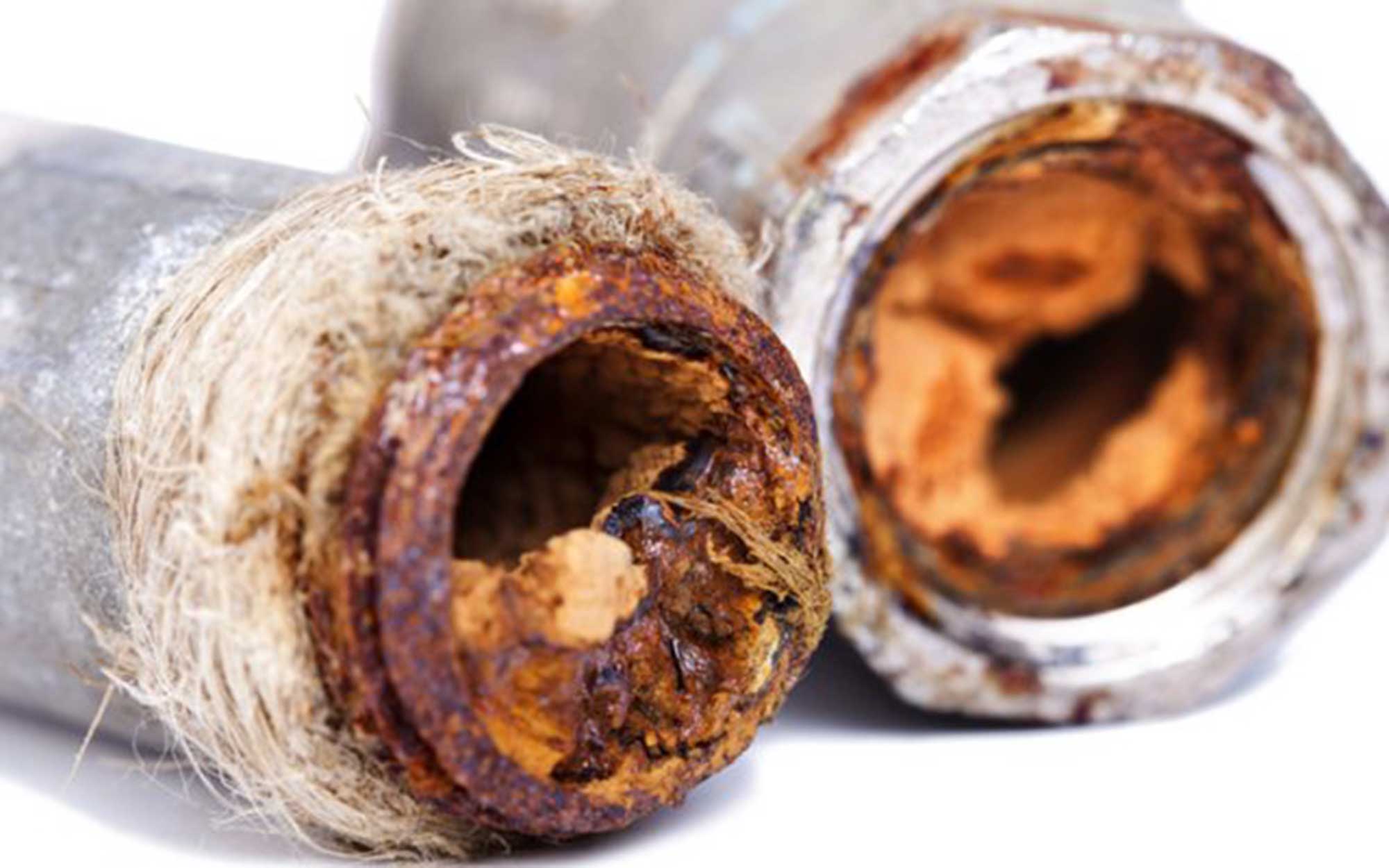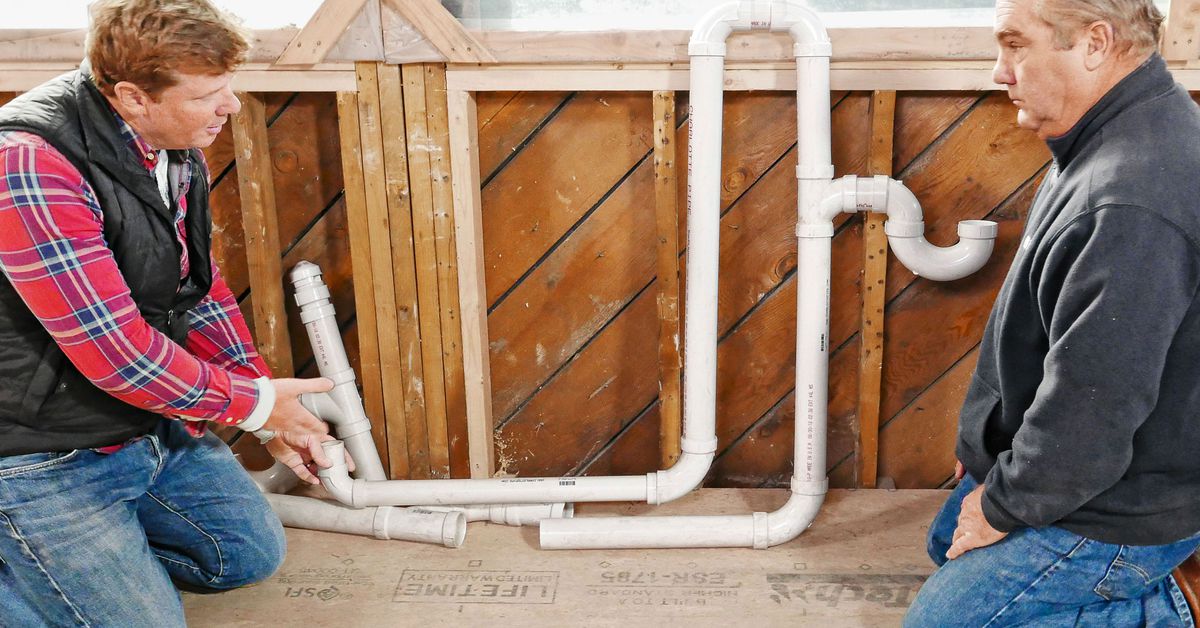When Home Appliances Go Awry: Typical Problems That Need a Plumber's Expertise
When Home Appliances Go Awry: Typical Problems That Need a Plumber's Expertise
Blog Article
What are your ideas about Why Do My Pipes Make Noises?

To detect loud plumbing, it is essential to identify first whether the undesirable audios happen on the system's inlet side-in other words, when water is turned on-or on the drainpipe side. Sounds on the inlet side have varied reasons: too much water pressure, used shutoff as well as faucet components, poorly linked pumps or other appliances, inaccurately placed pipeline fasteners, and plumbing runs having a lot of tight bends or various other limitations. Noises on the drainpipe side normally stem from bad location or, similar to some inlet side noise, a format including limited bends.
Hissing
Hissing noise that occurs when a tap is opened slightly usually signals excessive water stress. Consult your regional public utility if you think this trouble; it will be able to inform you the water pressure in your location and can set up a pressurereducing valve on the incoming water system pipe if essential.
Thudding
Thudding sound, frequently accompanied by trembling pipes, when a tap or appliance shutoff is shut off is a problem called water hammer. The noise as well as resonance are caused by the resounding wave of pressure in the water, which unexpectedly has no place to go. Often opening a valve that discharges water quickly into a section of piping having a limitation, elbow, or tee installation can produce the very same condition.
Water hammer can usually be treated by installing installations called air chambers or shock absorbers in the plumbing to which the problem shutoffs or faucets are attached. These gadgets enable the shock wave created by the halted circulation of water to dissipate in the air they have, which (unlike water) is compressible.
Older plumbing systems may have short upright sections of capped pipe behind wall surfaces on faucet runs for the very same purpose; these can ultimately full of water, lowering or destroying their efficiency. The treatment is to drain the water system entirely by shutting down the major water supply valve as well as opening up all faucets. Then open up the major supply shutoff and close the taps individually, starting with the faucet nearest the valve and also finishing with the one farthest away.
Chattering or Screeching
Intense chattering or shrieking that takes place when a shutoff or faucet is switched on, which normally goes away when the fitting is opened fully, signals loose or faulty inner components. The solution is to replace the valve or faucet with a new one.
Pumps as well as devices such as cleaning equipments and dishwashers can transfer motor noise to pipelines if they are incorrectly attached. Connect such things to plumbing with plastic or rubber hoses-never inflexible pipe-to isolate them.
Various Other Inlet Side Noises
Creaking, squeaking, scratching, snapping, and tapping typically are triggered by the growth or contraction of pipes, typically copper ones supplying hot water. The sounds occur as the pipes slide against loosened bolts or strike neighboring home framing. You can typically identify the place of the issue if the pipes are subjected; just follow the sound when the pipelines are making sounds. More than likely you will certainly find a loose pipe hanger or an area where pipelines exist so near flooring joists or various other framing pieces that they clatter against them. Attaching foam pipeline insulation around the pipelines at the point of get in touch with ought to fix the problem. Be sure bands and also wall mounts are protected as well as provide adequate assistance. Where feasible, pipe bolts must be connected to enormous structural elements such as structure walls instead of to mounting; doing so decreases the transmission of resonances from plumbing to surfaces that can amplify as well as transfer them. If attaching bolts to framework is unavoidable, wrap pipes with insulation or various other durable material where they speak to fasteners, and also sandwich the ends of brand-new bolts between rubber washing machines when mounting them.
Remedying plumbing runs that struggle with flow-restricting tight or countless bends is a last hope that ought to be undertaken just after speaking with an experienced plumbing service provider. Regrettably, this situation is relatively common in older residences that might not have been constructed with interior plumbing or that have seen several remodels, specifically by novices.
Drainpipe Noise
On the drain side of plumbing, the principal objectives are to eliminate surface areas that can be struck by dropping or rushing water and also to protect pipes to have inescapable noises.
In brand-new building, bathtubs, shower stalls, commodes, and wallmounted sinks and also basins should be set on or versus durable underlayments to lower the transmission of noise through them. Water-saving commodes and faucets are less loud than standard models; mount them instead of older types even if codes in your location still permit utilizing older components.
Drainpipes that do not run up and down to the cellar or that branch right into horizontal pipeline runs supported at floor joists or various other framing present specifically problematic sound troubles. Such pipes are big sufficient to radiate significant resonance; they also bring substantial amounts of water, which makes the scenario worse. In new building, define cast-iron soil pipes (the big pipelines that drain bathrooms) if you can manage them. Their enormity contains much of the sound made by water travelling through them. Also, prevent transmitting drains in walls shown bed rooms and also areas where people gather. Walls consisting of drains should be soundproofed as was explained previously, making use of dual panels of sound-insulating fiber board and wallboard. Pipes themselves can be wrapped with unique fiberglass insulation created the objective; such pipelines have an impervious vinyl skin (in some cases containing lead). Results are not constantly sufficient.
3 Most Common Reasons for Noisy Water Pipes
Water hammer
When water is running and is then suddenly turned off, the rushing liquid has no place to go and slams against the shut-off valve. The loud, thudding sound that follows is known as a water hammer. Besides being alarming, water hammer can potentially damage joints and connections in the water pipe itself. There are two primary methods of addressing this issue.
Check your air chamber. An air chamber is essentially a vertical pipe located near your faucet, often in the wall cavity that holds the plumbing connected to your sink or tub. The chamber is filled with air that compresses and absorbs the shock of the fast moving water when it suddenly stops. Unfortunately, over time air chambers tend to fill with water and lose their effectiveness. To replenish the air chambers in your house you can do the following. Turn off the water supply to your house at the main supply (or street level). Open your faucets to drain all of the water from your plumbing system. Turn the water back on. The incoming water will flush the air out of the pipes but not out of the vertical air chamber, where the air supply has been restored. Copper pipes
Copper pipes tend to expand as hot water passes through and transfers some of its heat to them. (Copper is both malleable and ductile.) In tight quarters, copper hot-water lines can expand and then noisily rub against your home's hidden structural features — studs, joists, support brackets, etc. — as it contracts.
One possible solution to this problem is to slightly lower the temperature setting on your hot water heater. In all but the most extreme cases, expanding and contracting copper pipes will not spring a leak. Unless you’re remodeling, there's no reason to remove sheetrock and insert foam padding around your copper pipes.
Water pressure that’s too high
If your water pressure is too high, it can also cause noisy water pipes. Worse, high water pressure can damage water-supplied appliances, such as your washing machine and dishwasher.
Most modern homes are equipped with a pressure regulator that's mounted where the water supply enters the house. If your home lacks a regulator, consider having one professionally installed. Finally, remember that most plumbers recommend that water is delivered throughout your home at no lower than 40 and no greater than 80 psi (pounds per square inch).
Whatever the state of your plumbing, one thing is certain — you’re eventually going to encounter repair and replacement issues around your home that require professional help. That’s where American Home Shield can come to your aid.
https://www.ahs.com/home-matters/repair-maintenance/causes-of-noisy-water-pipes/

Do you really like reading about Why is My Home Making Strange Plumbing Noises? Try leaving a review below. We will be interested to find out your suggestions about this page. Hoping that you come back again soon. Are you aware of anybody else who is excited by Why Do My Pipes Make Noises? Please feel free to share it. Many thanks for your time invested reading it.
Details Report this page